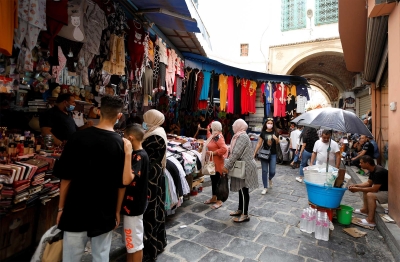Tunisian traders

Tunisia, as one of the North African countries, offers attractive opportunities for international trade. Geographically, it holds a strategic position, serving as a gateway to markets in North Africa and the European Union. Tunisia's market is diverse, encompassing sectors such as agriculture, energy, handicrafts, and technology. In the agricultural sector, Tunisia is one of the largest producers and exporters of olives and olive oil in the world. Citrus fruits and seafood are also among the country's key export items. Additionally, due to its need to import energy and technology, Tunisia presents significant opportunities for international businesses in these fields.
To start importing and exporting with Tunisia, conducting thorough market research and analyzing its needs is essential. Identifying the products or services that are in demand in the Tunisian market, as well as understanding local competitors and consumers, is crucial. Moreover, legal regulations and product standards in Tunisia must be carefully examined to ensure that your goods comply with local laws. Partnering with local companies, participating in trade exhibitions, and using digital marketing strategies can be effective ways to enter the market.
Tunisia’s economy is a mix of public and private sectors and has faced challenges such as unemployment and inflation, although it has experienced relative growth. Agriculture, industry, and services are the three main pillars of its economy. While agricultural production, particularly olives and citrus fruits, plays a significant role, the services sector, especially in tourism and information technology, has also seen notable growth. Additionally, the textile, food production, and petrochemical industries are important sectors in Tunisia.
In terms of finance, Tunisia's banking system operates under the supervision of the Central Bank of Tunisia. Commercial banks in the country offer a range of financial services, including letters of credit and loans to businesses. The national currency is the Tunisian dinar (TND), and exchange rate fluctuations may be influenced by economic and political factors. Tunisia’s tax system includes income tax, value-added tax (VAT), and other trade-related taxes, which must be considered when doing business in the country.
For success in trade with Tunisia, it is recommended to closely collaborate with local partners and carefully adhere to trade laws and regulations. Managing trade risks through tools such as export insurance and using secure payment methods like letters of credit can help mitigate financial risks. Building long-term relationships with business partners in Tunisia is also a key factor for achieving sustained success in this market.
 أحمد هلال1 months ago
أحمد هلال1 months ago ProfileMeteorite
ProfileMeteorite Mehrzi achref1 months ago
Mehrzi achref1 months ago ProfileMeteorite
ProfileMeteorite asil1 months ago
asil1 months ago ProfileMeteorite
ProfileMeteorite الفوغالي2 months ago
الفوغالي2 months ago ProfileMeteorite
ProfileMeteorite croco business2 months ago
croco business2 months ago ProfileCanned Foods
ProfileCanned Foods Sana chihaoui2 months ago
Sana chihaoui2 months ago ProfileDiamond
ProfileDiamond Jihed2 months ago
Jihed2 months ago ProfileBauxite, Galena, Chalcopyrite, Cassitrite, Hematite, Chromite, Coal, Sphalerite
ProfileBauxite, Galena, Chalcopyrite, Cassitrite, Hematite, Chromite, Coal, Sphalerite Aydi Ayed4 months ago
Aydi Ayed4 months ago ProfileRuby
ProfileRuby أحجار النيازك4 months ago
أحجار النيازك4 months ago ProfileMeteorite
ProfileMeteorite عاطف5 months ago
عاطف5 months ago ProfileMeteorite
ProfileMeteorite Saber Tunisia6 months ago
Saber Tunisia6 months ago ProfileEmerald, Meteorite
ProfileEmerald, Meteorite كريم7 months ago
كريم7 months ago ProfileDiamond
ProfileDiamond صابر ابن علي9 months ago
صابر ابن علي9 months ago ProfileAgate
ProfileAgate خليل الشهيدي11 months ago
خليل الشهيدي11 months ago ProfileTurquoise, Ruby, Diamond, Amber, Emerald, Jade, Chrysocolla, Tanzanite
ProfileTurquoise, Ruby, Diamond, Amber, Emerald, Jade, Chrysocolla, Tanzanite Kamel12 months ago
Kamel12 months ago ProfileLapis Lazuli, Emerald
ProfileLapis Lazuli, Emerald Iron meteorite13 months ago
Iron meteorite13 months ago ProfileDiamond, Charoite
ProfileDiamond, Charoite














